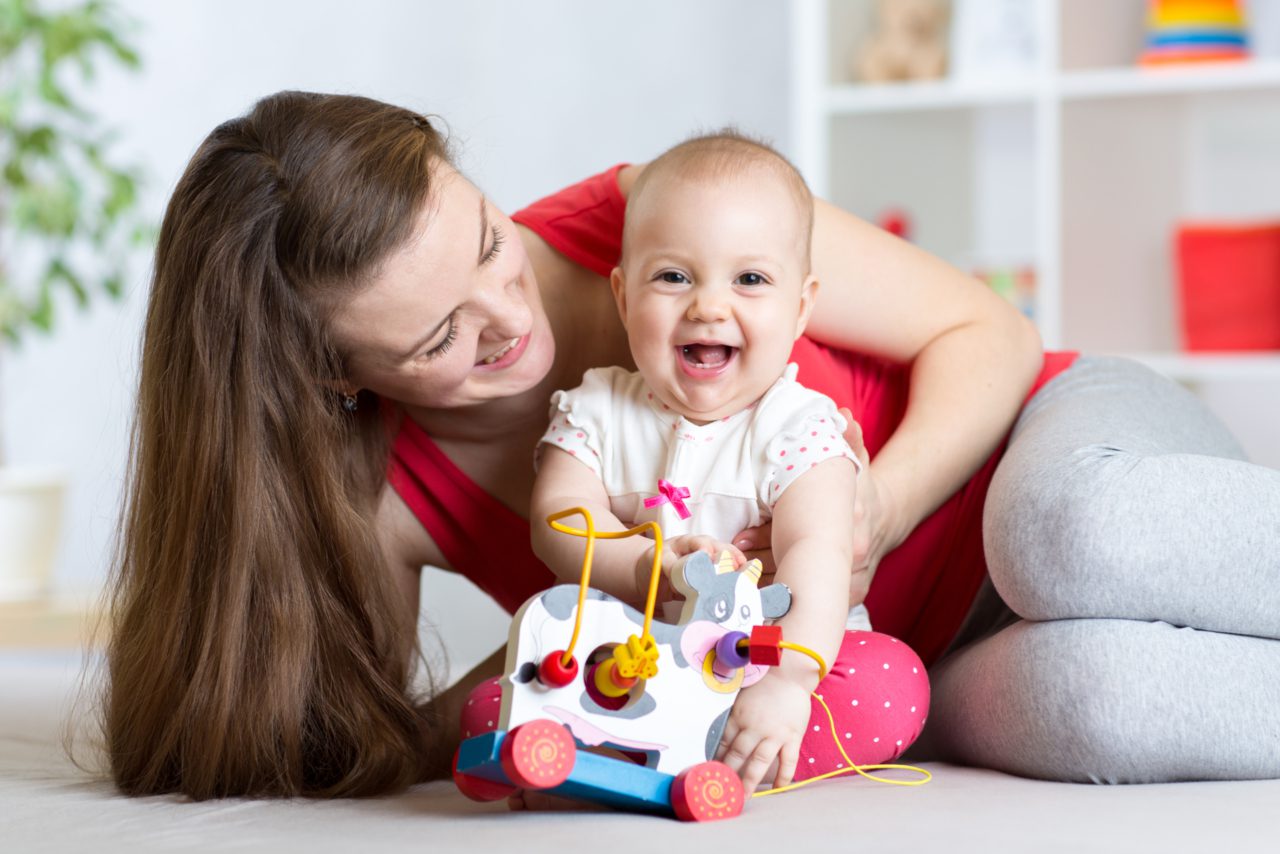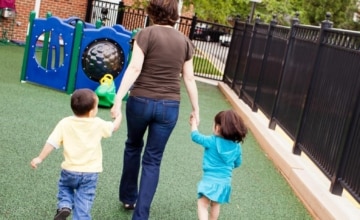Helping your baby develop a relationship with her babysitter is a gift to her. She learns that her community is filled with loving people who will take good care of her. Learn how to prepare your baby for their first time with a babysitter.
Q: We’re planning to leave our 6-month-old with a babysitter for the first time while we attend an evening wedding. I’m worried because my daughter doesn’t do very well with new people. How can we prepare her?
A: You’ve already taken the most important step by tuning in to the fact that your daughter is slow to warm up to new people. Plus, at 6 months, babies tend to cling because this is the age when they begin to differentiate between the people they know and those they don’t. If you can, have the sitter come over to visit for an hour or two before your evening out so she and your daughter can get to know each other in the safety of your presence. It will also give you a chance to talk about how you care for your daughter, including the way she likes to be held and fed, what upsets her, and how to soothe her.
On the night you’re going out, ask the sitter to come to your house about a half hour before you plan to leave, which will give your daughter time to make the transition. When the sitter arrives, sit down with her and the baby for a few minutes and get involved in an activity, such as playing with toys or reading stories. That way, when you leave, your daughter and the sitter will already be engaged in a an enjoyable activity.
And when you head out the door, it’s important that you say good-bye to them. Avoid the temptation to sneak out because that sends the message to your daughter that you’re doing something wrong by leaving. This will only increase your baby’s anxiety about the separation. Saying good-bye tells your child she can count on you to let her know what’s going on. It also means she doesn’t have to worry about when you’re going to disappear next. Say good-bye with a cheerful tone, smiles, and warm hugs. If you have a worried look on your face and a quivering voice, the message is, again, that you don’t feel good about leaving her and she must have something to worry about. And don’t come back in once you’ve left—for the same reasons.
Of course, sometimes your baby will protest, especially when she hasn’t yet developed a close relationship with your babysitter. Rest assured, most babies calm down within a few minutes’ of your leaving. If you are worried that your baby truly will “cry all night,” give your sitter a certain length of time—say a half-hour—to try and soothe the baby. If she doesn’t stop crying after 30 minutes, you can instruct your sitter to call and let you know.
Helping your baby develop a relationship with her babysitter is a gift to her, since she learns that her community is filled with loving people who will take good care of her. It is also a gift to you, since a night away from parenting is sometimes just what the doctor ordered!
From “Your Child’s Behavior,” a column written by ZERO TO THREE in American Baby magazine.





